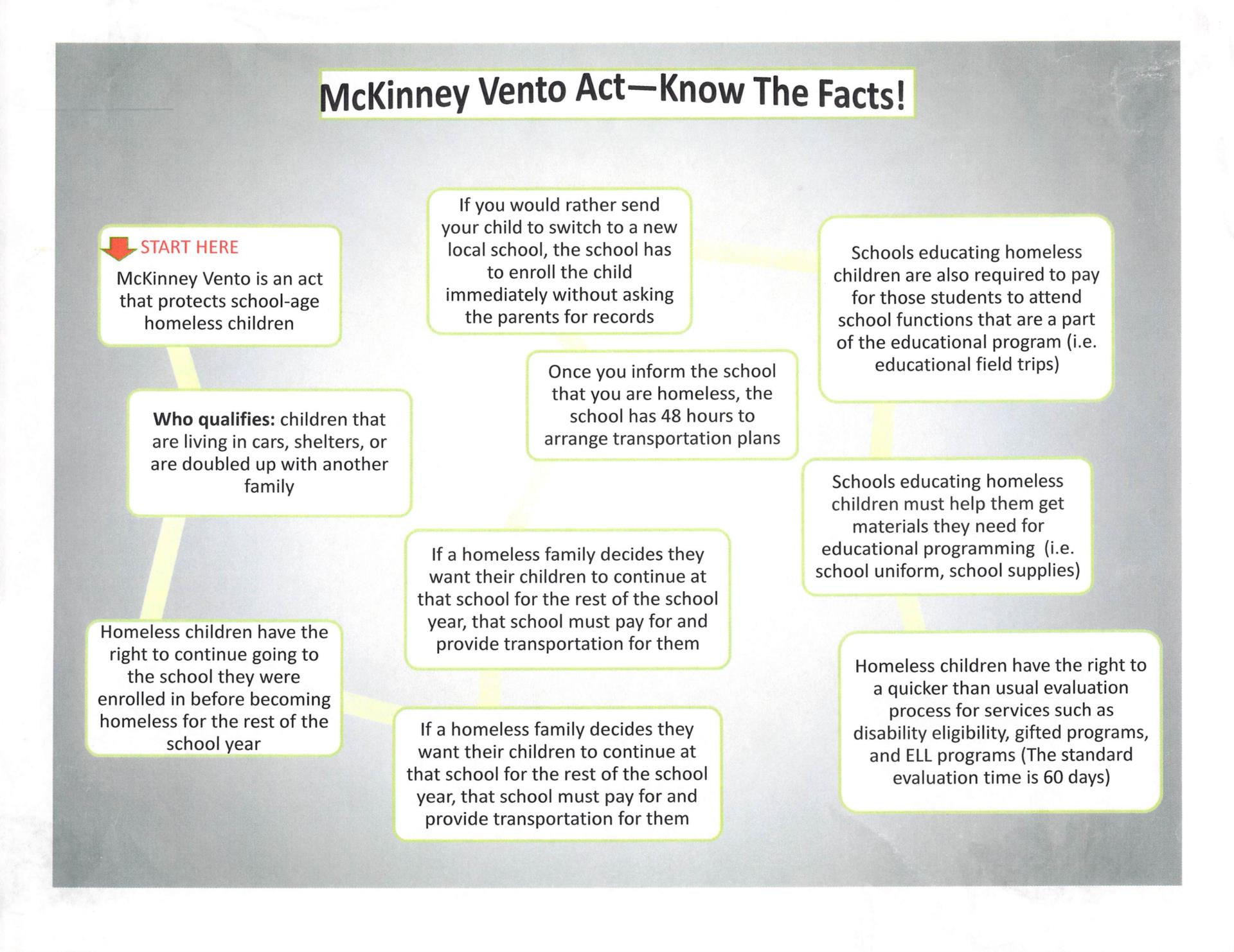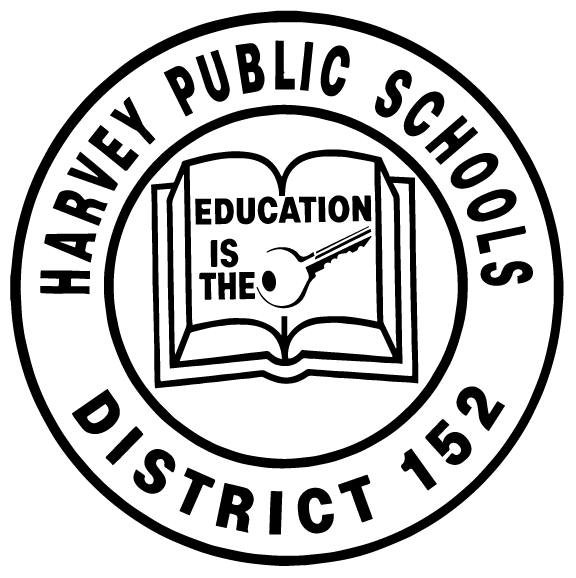McKinney-Vento
Contact Us

Barbara Gatlin
Advocate
(708) 333-0300 Ext. 116

Jackie Settles-Pilot
Advocate
(708) 333-0300 Ext. 117
Resources
The U.S. McKinney-Vento Assistance Act defines homeless children as those who lack a fixed, regular and adequate nighttime abode. In general, children or youth living in motels, transitional housing, shelters, the street, cars, parks, bus or train stations, abandoned buildings and other inadequate accommodations may be considered eligible for McKinney-Vento services.

This definition includes eligible families who live in any of the following situations:
Children living in "Substandard" conditions which include housing that lacks utilities (such as working water, gas or electricity)
Housing that is infested with vermin and mold, and does not have a working kitchen or a working toilet
Housing that might present unreasonable dangers to adults, children, or persons with disabilities
Children sharing housing with of other persons due to loss of housing, economic hardship, or a similar reason
Children living in motels, hotels, trailer parks, or camping grounds due to lack of alternative adequate accommodations
Children living in crisis shelters, emergency shelters or transitional shelters
Children abandoned in hospitals
Children and youth who have a primary nighttime residence that is a public or private place not designed for, or ordinarily used as, a regular sleeping accommodation for human beings
Children and youth who are living in cars, parks, public spaces, abandoned buildings, at bus or train stations, or similar settings
Unaccompanied youth (students not living in the physical custody of a parent/guardian, commonly referred to as runaways, lockouts, throwaways, etc.)
Migratory children who qualify as homeless because they are living in circumstances described above
Eligible children and youth have the right to:
Receive a free, appropriate public education
Enroll in school immediately, even if lacking documents normally required for enrollment
Enroll in school and attend classes while the school gathers needed documents
Enroll in the local school; or continue attending their school of origin (the school they attended when permanently housed or the school in which they were last enrolled), if that is your preference and it is feasible
If the school district believes that the school you select is not in the best interest of your child(ren), then the district must provide you with a written explanation of its position and inform you of your right to appeal this decision
Receive transportation to and from school, if the students meet the state statue eligibility requirements
Receive educational services that "Non-homeless students" are eligible to receive
A priority to enroll in pre-school
If children and their parent/guardian who initially share the housing of another person due to the loss of housing, economic hardship or a similar hardship continue to share housing, the local education association (in this case District 152) may, after the passage of 18 months and annually thereafter, conduct a review as to whether the hardship continues to exist in accordance with state law.
